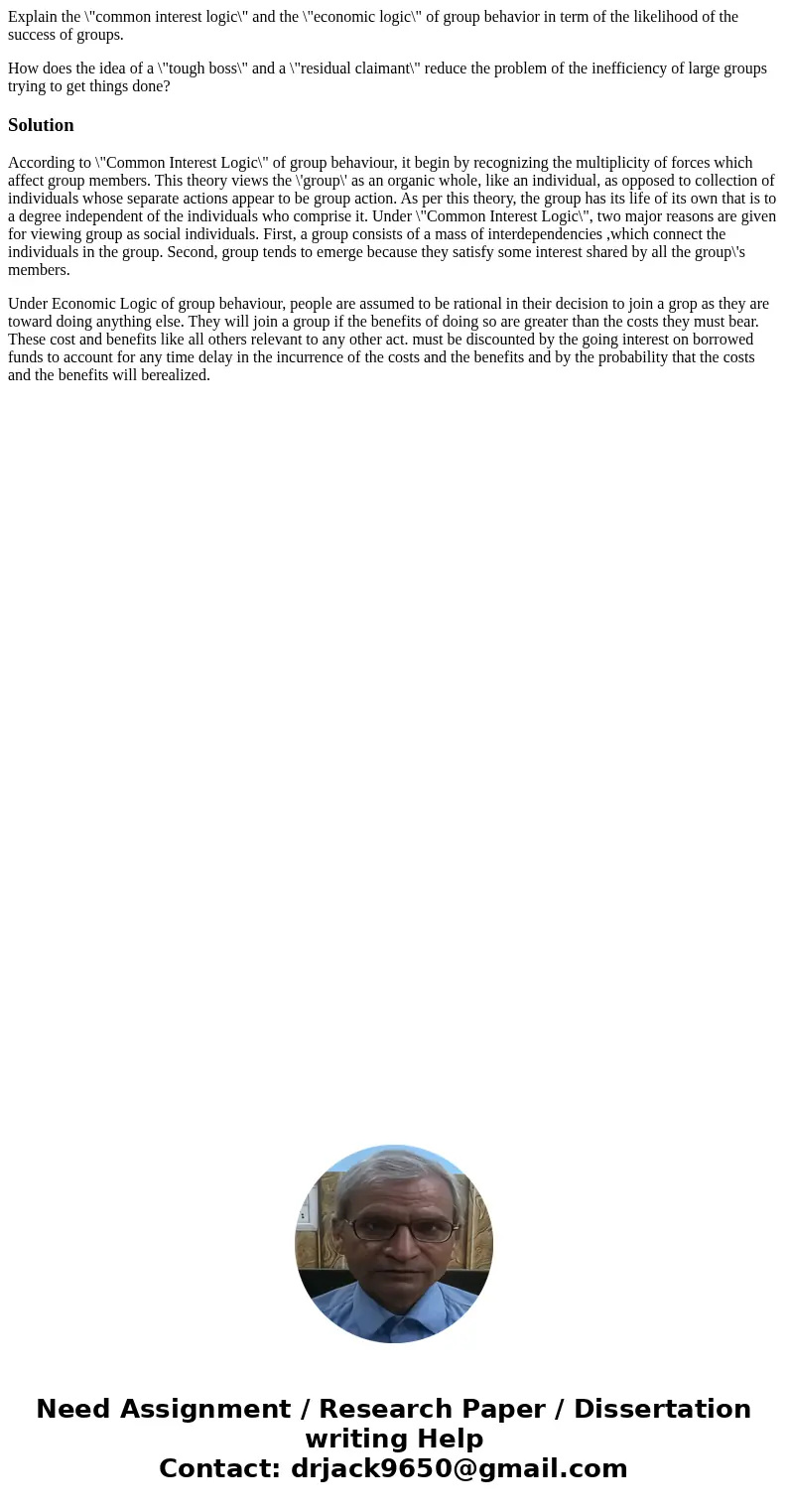Explain the common interest logic and the economic logic of
Explain the \"common interest logic\" and the \"economic logic\" of group behavior in term of the likelihood of the success of groups.
How does the idea of a \"tough boss\" and a \"residual claimant\" reduce the problem of the inefficiency of large groups trying to get things done?
Solution
According to \"Common Interest Logic\" of group behaviour, it begin by recognizing the multiplicity of forces which affect group members. This theory views the \'group\' as an organic whole, like an individual, as opposed to collection of individuals whose separate actions appear to be group action. As per this theory, the group has its life of its own that is to a degree independent of the individuals who comprise it. Under \"Common Interest Logic\", two major reasons are given for viewing group as social individuals. First, a group consists of a mass of interdependencies ,which connect the individuals in the group. Second, group tends to emerge because they satisfy some interest shared by all the group\'s members.
Under Economic Logic of group behaviour, people are assumed to be rational in their decision to join a grop as they are toward doing anything else. They will join a group if the benefits of doing so are greater than the costs they must bear. These cost and benefits like all others relevant to any other act. must be discounted by the going interest on borrowed funds to account for any time delay in the incurrence of the costs and the benefits and by the probability that the costs and the benefits will berealized.

 Homework Sourse
Homework Sourse